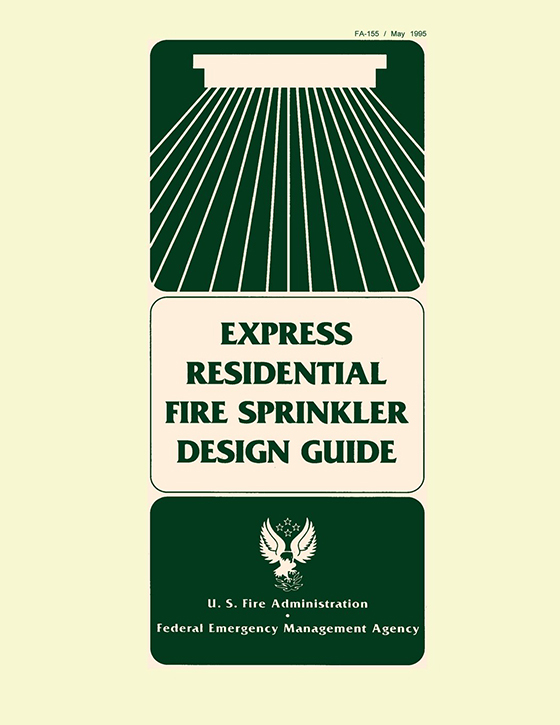Fire Sprinklers – Small but Effective
DEAR TIM: We are getting ready to build a new home in an area served by a volunteer fire department. Due to the great distance between our house and the firehouse, I feel that a residential fire sprinkler system will be a good idea. My husband disagrees. He says that smoke detectors are good enough. He also says that sprinklers can create massive water damage. What advice can you offer to settle this disagreement? W.C.
DEAR W. C.: Residential fire sprinklers are one of the best investments you can make in your new home. Resolve not to give in to your husband on this issue. The stakes are too high.
Residential fire sprinklers serve an entirely different function than smoke detectors. Smoke detectors tell you, as long as they are maintained in working order, that a fire is in progress. Sprinklers actually have the capability to extinguish or control a fire until such time as the fire department responds.
In your case, a single sprinkler may have already extinguished the fire before the volunteers have reached your house. Without sprinklers your fire department may arrive just in time to save your foundation. Sprinklers make good sense even if you live across the street from a firehouse.
Residential fire sprinklers have many myths attached to them. One of these is water damage. Many people believe that all sprinklers activate in a fire situation. This simply is not true.
Only the sprinklers in the fire area activate. Sprinkler heads are set to operate as soon as the air temperature surrounding the head reaches a factory set temperature. Many residential sprinklers activate at 160 - 165 degrees F. Some fires generate temperatures like this near the sprinkler heads in as little as 45 seconds.
A standard quick response sprinkler head usually discharges about 13 -18 gallons of water per minute. Studies have shown that a single sprinkler head can extinguish many common residential fires in about four minutes. A wide majority of residential fires only activate one or two sprinkler heads. Early extinguishment of fires also limits smoke and heat damage as well.
Save time and money on your next security or fire alarm installation. Find the pros using my Security & Fire Alarm Installation Checklist. I offer a 100% Money Back Guarantee.
Let's talk about water damage. A fire department responding to a house fire that has been burning without any extinguishing efforts may use several large diameter hoses to begin their fire fighting efforts. Temperatures in the fire area can exceed 1,300 degrees F.
The fire fighters may have to use several 1 3/4 inch diameter hoses set at a flow rate of 150 gallons per minute to extinguish the blaze. They will probably use hundreds, if not thousands, of gallons of water to extinguish the fire. Smoke, heat, water, and steam damage throughout the house can be significant.

Want more information on the importance and use of Fire Sprinkler systems? CLICK THE IMAGE to get the ultimate guide to Fire Sprinklers.
Many people think that sprinklers are costly. This also is a myth. In many areas of the nation, sprinklers can be installed for about 1 percent of the cost of the home. Virtually every insurance company offers substantial discounts on fire insurance policies if you install a sprinkler system. Savings on insurance premiums can, over a period of time, actually pay for the installation of the system.
Residential sprinkler systems do not require specialized plumbing or water supplies. The sprinklers operate from your standard domestic water source or supply. The design of residential sprinkler heads has also come a long way. Many are quite attractive.
They bear no resemblance whatsoever to those that you may have seen in warehouses or commercial buildings. Some come in polished brass, chrome, or white. Often they project only one half or three quarters of an inch below the finished ceiling materials.
Retrofitting an existing house can be done, but it will be more expensive. Consider installing sprinklers near your heating equipment and in your kitchen area. Statistics confirm that these areas of your home are the most likely place a fire will start. Unfinished basements are also very easy to sprinkler. The easy access to plumbing lines makes it a natural place to begin.
Residential fire sprinklers save lives and property. They also afford great peace of mind. I intend to include them in my next new house. Your failure to include them in yours may cause you to become a grim statistic.
Column 034